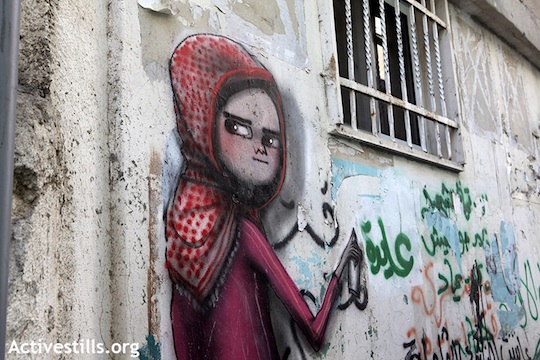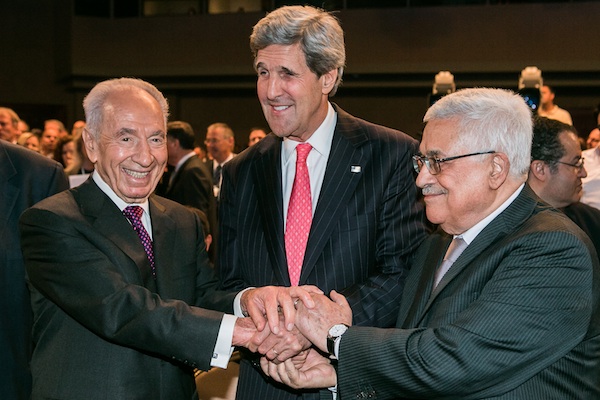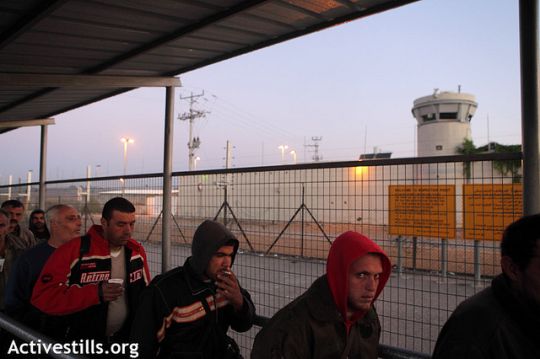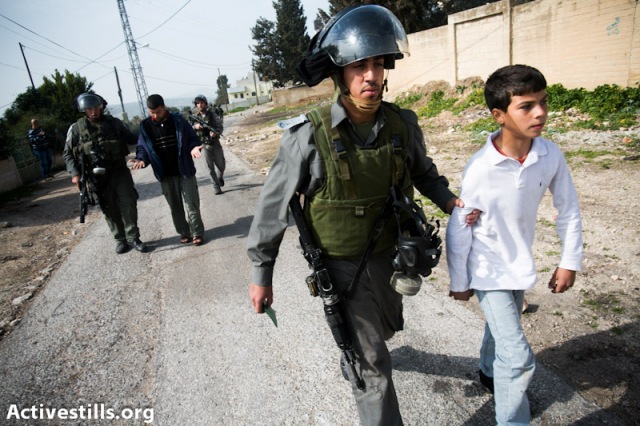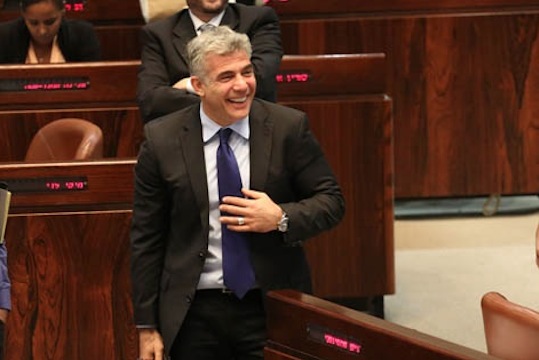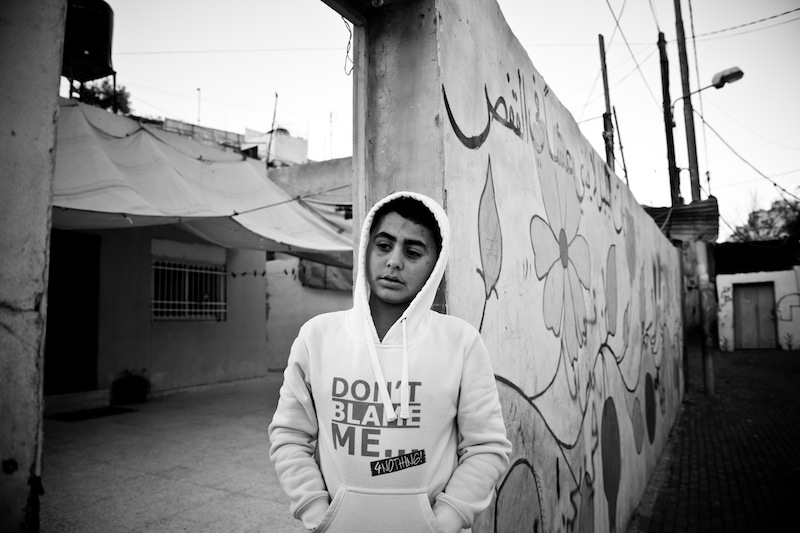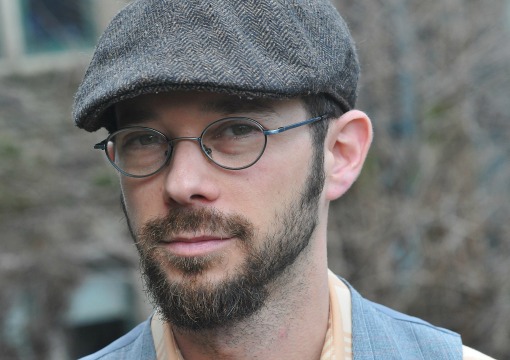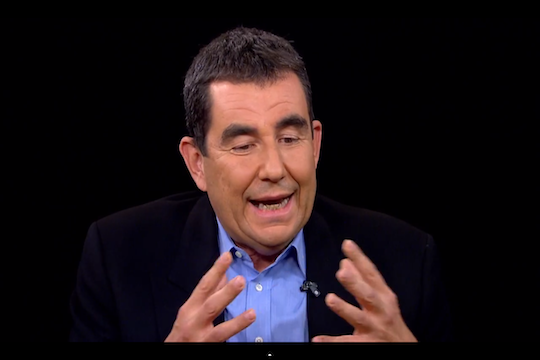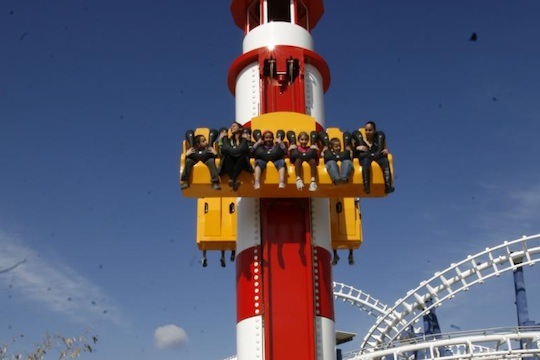As 2013 comes to a close, +972 Magazine’s editors and bloggers took time to look back at the year that was, and share the articles that most resonated with them – in no particular order.
‘They’re all named Mohammad nowadays’
In one of the most heartfelt posts of the year, Mya Guarnieri describes the difficulties of confronting discrimination, identity politics and occupation while searching for an apartment in Bethlehem. Read the article here.
‘I am pro-Israel too’: Reflections on +972’s use of the term

When some +972 writers used ‘pro-Israel’ to negatively describe right-wing politicians and activists, Dahlia Scheindlin stood up, opening an important discussion. The term ‘pro-Israel,’ she wrote, should mean anti-occupation, support for human rights, equality, democracy for all peoples under Israel’s control – not hard-line Zionism. Read the full article here.
How a Jewish Agency fellow becomes a one-state activist
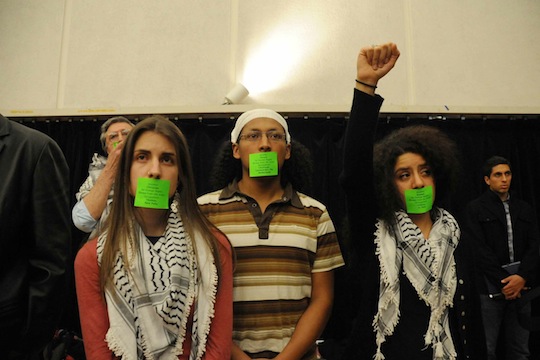
Before she became an activist for Palestinian rights, Gila Hashkes was a Hillel Israeli Fellow who came from a right-wing religious background. However, her time spent defending Israeli policies at UC Berkeley, where she was pushed by both her Jewish and Palestinian peers and could glimpse the ‘mentality of fear’ that grips the American Jewish community, she moved back to Jerusalem to work for equal rights for all. Read the article here.
Live from Turkey: Last Metro to Taksim
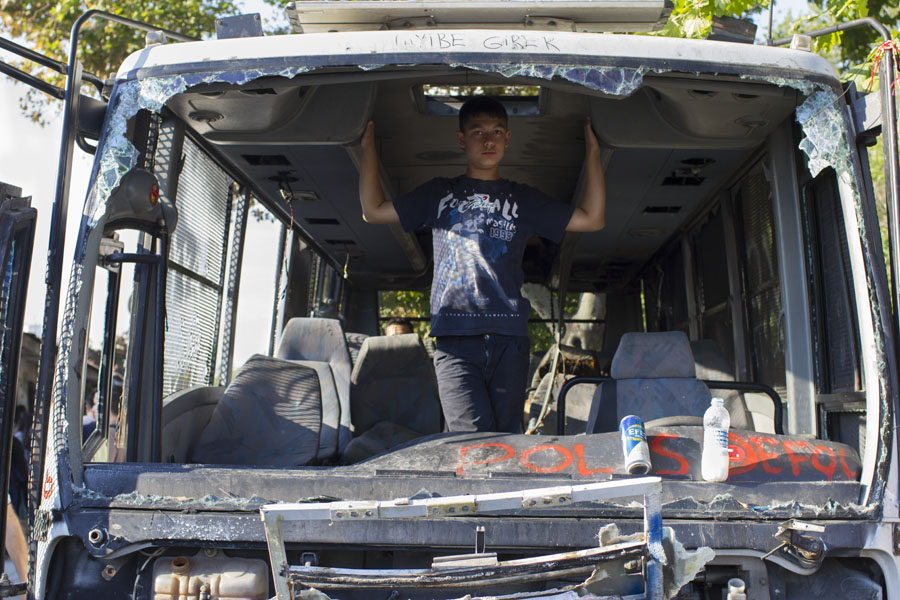
Yuval Ben-Ami and photographer May Castelnuovo set out to Turkey to cover the country’s wave of anti-government protests. The writer-photographer duo wrote a series of posts exploring the personal and political dynamics of the protest movement, comparisons between Turkey’s demonstrations and the Israeli J14 social protests and vivid on-the-ground scenes of camaraderie and tear gas. Read the full series here.
Nakba’s memory more present than ever in Israel
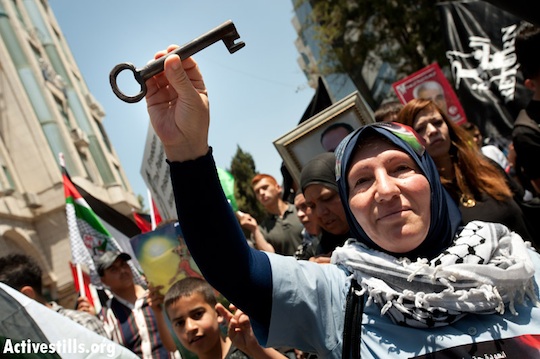
The Israeli Right has been waging a war on history in recent years, using extreme measures to remove evidence of the Nakba from the national discourse. Noam Sheizaf says one thing is clear: the war against history has failed. The Nakba will not be forgotten – not by Palestinians, nor by Israelis. Read the article here.
What it means to be a Palestinian immersed in Israeli society
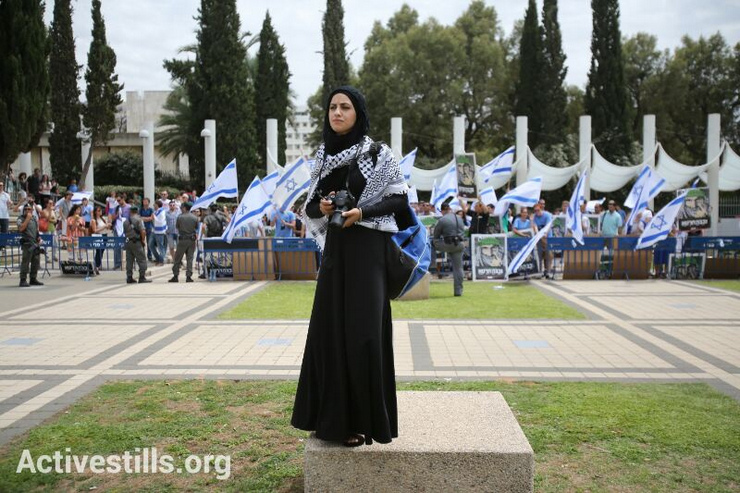
When Towibah Mjdoob began researching how some Palestinians live within entirely Jewish surroundings, she very quickly realized that she had become the subject of her own research. Read the full article here.
Is Kerry out to make peace or a peace process?
2013 was the year that the U.S., once again, managed to bring the Israelis and the Palestinians to the negotiating table. But is the U.S. actually aiming for peace, or does the peace process itself merely serve American interests in the region? Read Michael Omer-Man’s article here.
WATCH: U.S. State Department determined to prove that 2+2=5
What happens when Ami Kaufman gets ahold of a State Department briefing transcript on Israeli settlement building and U.S. efforts at restarting peace? You don’t want to know.
The world’s blatant double standard – in Israel’s favor?

They boycott movement picked up steam in 2013, receiving support of new backers and breaking new ground, most recently with the American Studies Association endorsing an academic boycott of Israel. Larry Derfner reminds boycott detractors that of all arguments against BDS, accusations that the world is singling out Israel are simply unfounded. If anything, Israel is being let off the hook. Read the full article here.
Notes from a journey to settler backcountry
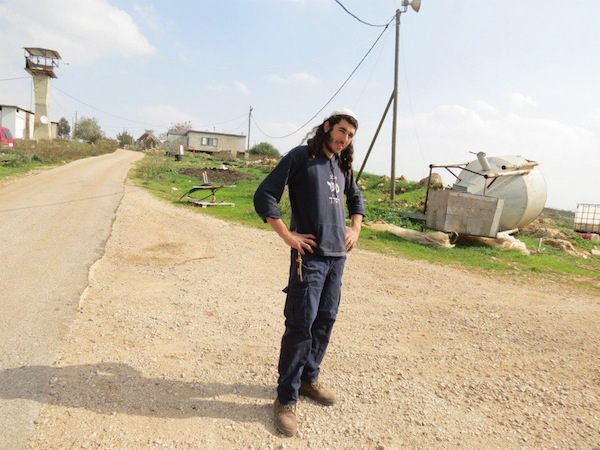
When +972’s Edo Konrad and Yuval Ben-Ami headed to the heartland of the West Bank’s most radical settlements, they had no idea what to expect. Despite the graciousness of their hosts, by the end of their journey it became quite clear that they were no longer welcome. Read the article here.
What’s behind Israel’s biggest economic boom? The occupation
The period of Israel’s history that by far saw the largest economic growth, was the six years following the Six Day War. And what agricultural, industrial, or hi-tech breakthroughs took place around 1967-1973? None worthy of mention. More than any other factor, it was the establishment of the Occupation-Settlement Enterprise. Read the article here.
A search for song and identity

Café Gibraltar sat down with Neta Elkayam, an up-and-coming artist and musician based in Jerusalem, to discuss her experiences growing up in a southern Israeli development town, her life-changing trip to Morocco, and the power of North Africa’s female singers. Read the article and listen to her mixtape here.
Did Israeli pressure lead UNICEF to tone down its report on child detainees?
A story in The Australian newspaper offers a glimpse into the makings of a UN report on Palestinian children detained by Israel, including a look into how Israeli pressure reportedly muffled the report’s criticism. Read the article here.
Yair Lapid reveals true nature of the Israeli-Palestinian conflict
“Israelis and Palestinians want two very different things: the Palestinians want peace and justice; the Israelis want peace and security. And we will always be in conflict there.” Yair Lapid breaks down what he sees as the very essence of the conflict. Omar Rahman isn’t buying it.
Testimonies from Palestinian children imprisoned by Israel
Photographer Samar Hazboun set out to meet Palestinian children who were detained by Israeli forces, to take their testimonies and tell their stories. Read the full article here, and our special coverage of children under occupation.
‘What Do You Buy the Children of the Terrorist Who Tried to Kill Your Wife?’
How does a great personal trauma lead to a personal journey that upends long-held beliefs and ideas? A new book recounts the author’s search for reconciliation and psychic healing after his wife was severely wounded in a bombing in Jerusalem. The touching book culminates in a meeting in the East Jerusalem home of the family of the man who had planted the bomb. Read Lisa Goldman’s review here.
Pretending away the Nakba only perpetuates the conflict
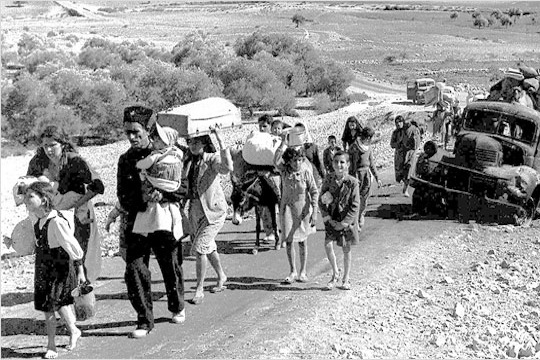
Yossi Gurvitz compares the 1948 war to the post-World War II ethnic cleansing of German nationals in Czechoslovakia. But as opposed to Czechoslovakia, when Israelis prefer to pretend there was no ethnic cleaning here, it becomes a wholly different question. The conflict won’t end unless Israel admits to the injustice it caused, Gurvitz says. Read the article here.
On Ari Shavit’s ‘My Promised Land’
A new book by Ari Shavit has turned him into a darling of the liberal U.S. Jewish elite. In his review, Noam Sheizaf explains why “My Promised Land” is a book for the “Zionist 1 percent.” Read the full review here.
A journey into the dark heart of Israel’s permit regime

Trapped between the separation barrier and the Green Line, Palestinians living in the ‘Seam Zone’ are forced to reckon with a Kafkaesque permit regime that appears designed to do one thing and one thing only: make them give up and leave. Read the article here.
Why does the Israeli Left want to keep the Wall?
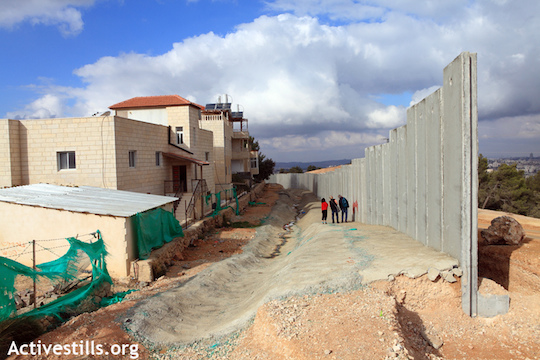
As more noted right-wingers call to demolish the separation wall, the Left finds itself in an unseemly position – defending one of the great injustices of the occupation in the name of the distant prospect of two states. Read Dimi Reider’s article here.
Photos behind the headlines: Raging against Prawer
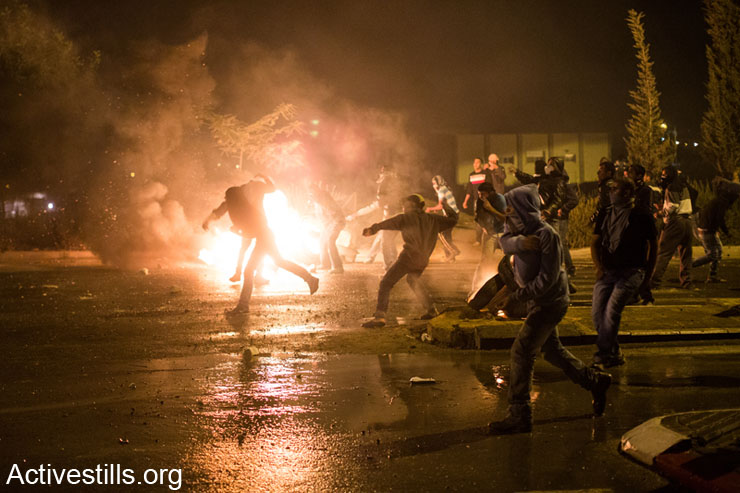
Whether its capturing the anti-Prawer protests, clashes in the West Bank or direct actions in the name of animal rights, Activestills was there to bring you the most breathtaking photos from Israel and Palestine like you won’t find anywhere else. Seriously, try and find them anywhere else.
‘Superland’ and the normalization of segregation in Israel
An Israeli amusement park found itself in hot water after being caught segregating Jewish and Arab school groups. But instead of being an aberration, the incident is reflective of the dominant culture of segregation and discrimination that permeates Israeli society from the bottom up. Read Mairav Zonszein’s article here.

